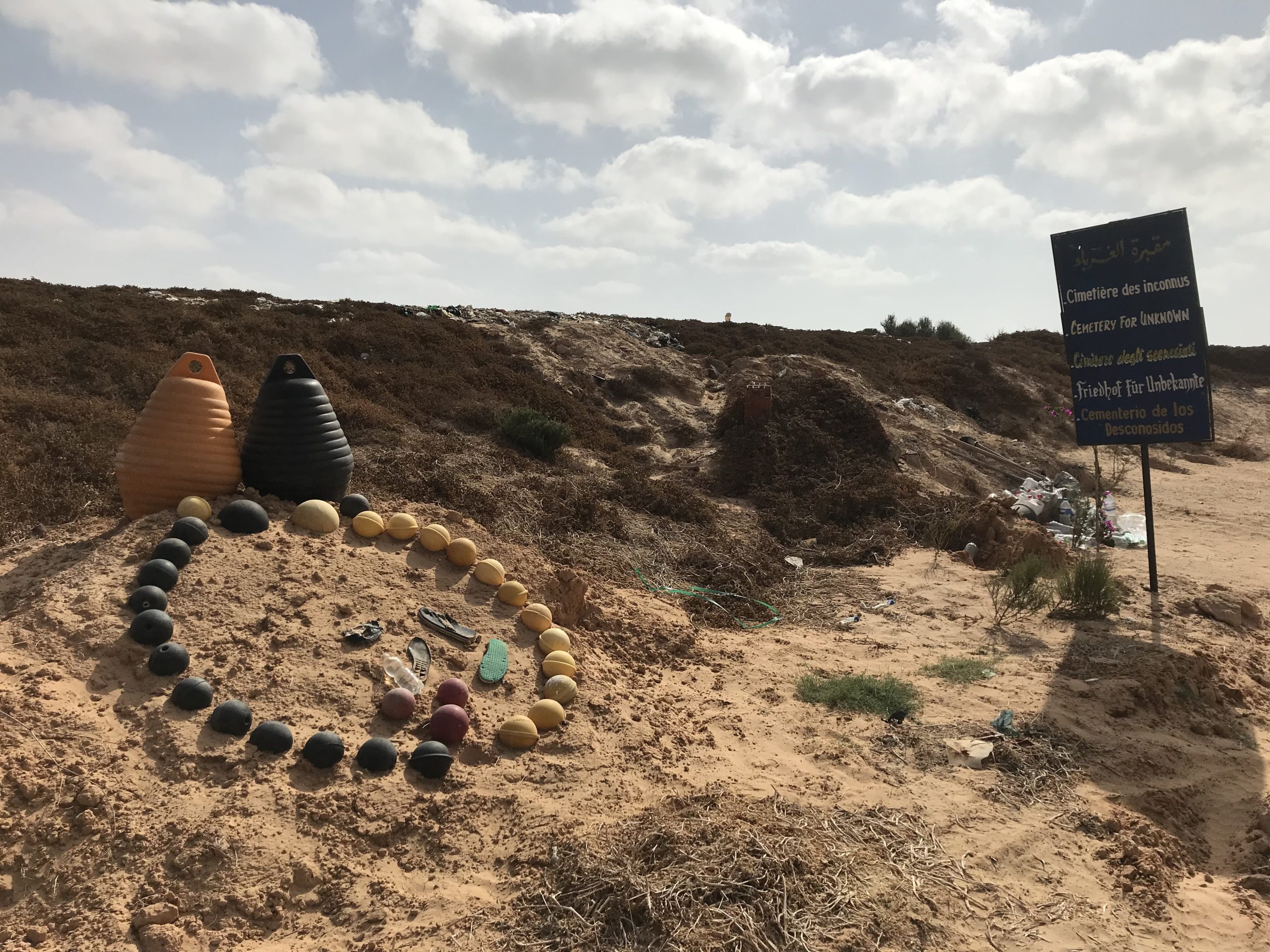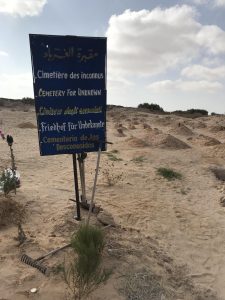
One of Tunisia’s biggest challenges is how to handle migrants illegally leaving its borders. Tunisia’s location at the tip of Africa makes it a springboard for migrants looking to set off towards the European Union (EU).
By Arthur Blok
This year’s worst migrant disaster in the country occurred in June. At least 100 migrants died when a boat carrying about 180 sank off the coast of Sfax, the country’s second largest city. It was the worst migrant disaster this year after 90 migrants drowned off the Libyan coast in February.
The overcrowded boat was supposed to hold a maximum of 90 passengers. When the boat started sinking the captain left the passengers to their fate. On board were both Tunisians and migrants from sub-Saharan Africa. The converted fishing boat began taking on water about two hours into its journey from the Kerkennah Islands off the coast of Sfax.
In the past years, these islands were one of the main points for departure seen its vicinity to the Italian island of Lampedusa. Many young Tunisians are trying to leave the country because of the lack of future perspectives, said Valentin Bonnefoy migration coordinator at the Tunisian Forum for Economic and Social Rights (FTDES). The Tunis based organization strives not only to defend migrants rights but also that of workers and protesters. The FTDES also does research on emigration from Tunisia and organizes debates about the phenomenon.
“I do not understand why the EU just does not open its borders for these migrants. In that way, you can easily select who comes in, and prevent migrants from trying to enter the continent illegally. It would be better for everyone, “ said Bonnefoy.
Security forces have since the accident stepped up security all over the country. A few weeks after the disaster Tunisian security forces indeed arrested the captain of the boat and his accomplice. In the same period, premier Youssef Chahed sacked the Interior Minister and at least 10 corrupt security officials for failing to stop the boat.
Official figures
According to official state figures, the Tunisian authorities prevented 6.000 people from migrating to the EU in the first six months of 2018, while at the same time about 3.000 migrants succeeded in reaching the EU. A sharp increase compared to the same period last year.
The vast majority of this group are young Tunisians expecting a better future in Europe, said Najet Zammouri vice president of the Tunisian Human Rights League. She does not take the official figures for granted: “These state numbers serve a political agenda. In my opinion, the actual amount of illegal migrants departing from the country is much higher.”
The association observes and defends human rights in the country, and is not shy to ring the alarm bell when necessary. “What worries me is that the government does not even seem to have the beginning of a plan ready to solve the issue and prevent young people who want to leave. Please note that we are not only talking about poor people but also young people with a university diploma. Instead of fighting the symptoms we should look for a comprehensive solution,” said Zammouri.

Cemetery of the Unknown
Tunisia has been severely affected by the Libyan Civil War. The people that live in the south of the country suffer disproportionally from the current status quo. Many saw their income vaporize as the vast majority of them used to work in Libya. The border is now largely closed and working across the border in Libya is just unsafe due to the deteriorating security situation.
Another 'popular' point of departure is the small coastal town of Zarzis on the southern Tunisian coast about 50 kilometers from the Tunisian-Libyan- border. In this small fisher town, the dark side of migration crisis becomes a bitter day-to-day reality.
Every year, the bodies of migrants who either depart from neighboring Libya or Tunisia wash ashore in this area. Former fisherman Chemseddine Marzoug is one of the town's volunteers that pays the unknown their last respect. In cooperation with the municipality, he runs the ‘Cemetery for the Unknown’ located a few kilometers outside the town center.
The main road to the cemetery is a bumpy dirt road that runs a couple of hundred meters through an olive grove and abandoned pieces of land. On this cemetery over 400 corpses were buried in the past 10 years: more than 80 of them in 2017 alone. “I do this all voluntary, just to grant these people a burial with respect. Something every human being deserves. Let’s say for the sake of humanity”, said Marzoug.
In the first half of 2018 more than 700 migrants lost their lives departing from Libya and Tunisia Marzoug explains. In recent months 12 bodies washed ashore in Zarzis. “I fear the winter when the sea gets rougher. Usually, we see a huge increase in the number of accidents.”
Criminal networks
In the past years, most of the people that departed did that on their own initiative. Just a group of young people buying a boat, an engine, and some fuel, explains Marzoug. “It is about 15 to 18 hours on the boat to the Italian island of Lampedusa. Nowadays everyone has a GPS function on their mobile phone. So it is quite easy to navigate as well.”
Human right activist Zammouri is quite skeptical with the government’s efforts in combatting the crisis. According to her, they are doing their best to prevent certain stories from appearing in the media.
“As was reported in the media the captain of the overcrowded vessel that sank in June was arrested by the authorities. Within a few weeks after his detention, he died of a heart attack. Before he could tell everyone a clear story of what really happened. How is it possible that a healthy young man all of a sudden dies of a heart attack?”
Zammouri met on various occasions with government officials to discuss the migrant issue. One thing stroke her the most: “There does not seem to be a real political will to seriously deal with it. That makes me very sad, and only confirmed to me that we have a long way to go to solve the matter.”
Arthur Blok is the Executive editor in chief of the Levant News.






